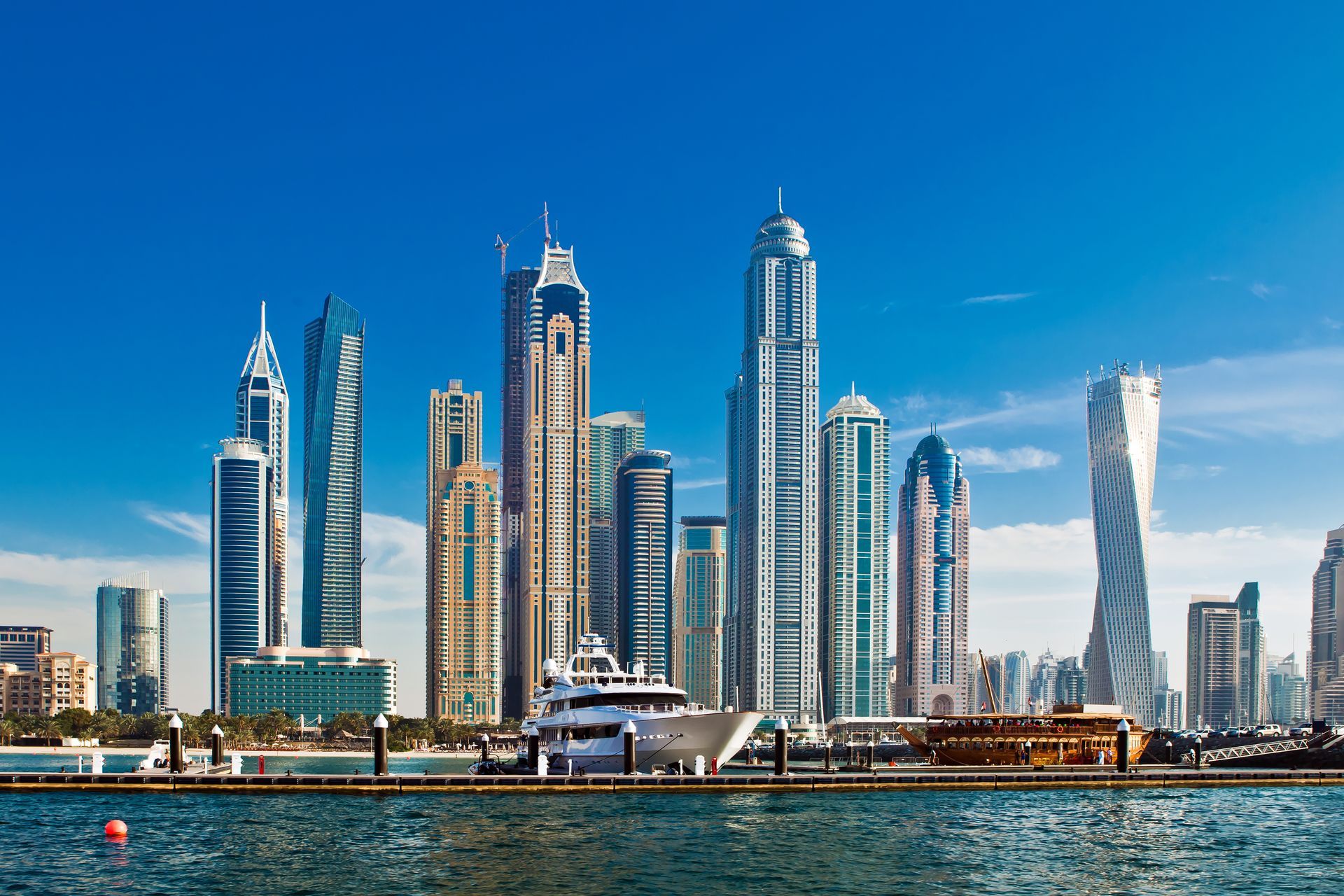How the 2024 UK Budget Could Reshape Business Choices
Andy Wood • December 23, 2024
How the 2024 UK Budget Could Reshape Business Choices: Is the UAE a Smarter Alternative?

The 2024 UK Budget delivered a series of tax increases that could weigh heavily on business owners. With higher corporate tax rates, reduced allowances, and more stringent compliance measures, running a business in the UK is becoming increasingly expensive. For those seeking growth-friendly environments, the UAE offers a compelling alternative, boasting a 9% corporate tax rate, zero personal income tax, and a growing global reputation as a business hub.
Book a call
This shift highlights the need for business owners to assess how tax policies align with their ambitions. In the UAE, businesses benefit from economic incentives, robust infrastructure, and a strategic global position, making it an attractive destination for international entrepreneurs.
Key Budget Changes and Their Impact
National Insurance Contributions
Employers face rising NIC rates (from 13.8% to 15%) and lower thresholds for payments. Despite an increase in the Employment Allowance, the added costs will strain resources for small and medium enterprises (SMEs).
The UAE has no income tax or NICs:
The absence of income tax or NICs allows companies to reinvest in growth without the burden of rising employment costs.
Capital Gains Tax Reform
CGT rates have risen to 18% for the basic rate and 24% for the higher rate, impacting disposals after October 2024. Additionally, Business Asset Disposal Relief (BADR) will climb to 14% by 2025. For entrepreneurs selling assets, these changes substantially reduce net returns, limiting funds for reinvestment.
The UAE has no CGT:
With no CGT, business owners retain more of their profits, fuelling growth and wealth preservation.
Changes to Non-Domicile Taxation and Inheritance Rules
From April 2025, the non-domicile regime will shift to a residence-based system, narrowing exemptions for offshore income. Additionally, inheritance tax (IHT) reliefs for agricultural and business assets will be capped at £1 million.
The UAE does not impose an inheritance tax:
Free from inheritance taxes, the UAE offers business owners the freedom to secure their wealth for future generations without complex compliance hurdles.
A Strategic Relocation?
For UK business owners, the Autumn Budget underscores the urgency of reassessing long-term plans. The UAE, with its favourable tax environment and vibrant business ecosystem, offers a unique opportunity to secure growth and preserve wealth in an increasingly complex fiscal climate.
Whether you’re planning to expand or relocate, expert advice is crucial. Our team is here to help you every step of the way. Book a call with one of our advisors below.

By Andy Wood
•
April 1, 2025
For over two centuries, the UK’s non-domiciled tax regime and its remittance basis has been a cornerstone of tax planning for wealthy expats and international families. It was introduced, along with income tax, by Willian Pitt the Younger at the very end of the 18th century. It was part of the fiscal firepower necessary to battle Napoleon Bonaparte. And, like income tax, it had pretty much been a constant feature of the UK’s system ever since. But in March 2024, the then Chancellor, Jeremy Hunt, rang the death knell for the remittance basis, with Labour’s Rachel Reeves – who would succeed Hunt a few months later - declaring she would have abolished it anyway. The end is therefore very much nigh for the UK’s non-dom tax regime. More specifically, the end is 6 April 2025. However, out with the old and in with the new’ goes the saying. As such, the ‘what comes next’ will reshape the tax landscape for non-doms, expats, and international investors with a UK footprint (or those considering creating one). What is Domicile (and Non-Domicile)? Domicile is not a straightforward concept like tax residence. The latter is largely about physical presence (or otherwise) in a particular. Instead, as well as physical presence, it also requires an understanding of your future intentions. Is a place somewhere that you intend to live permanently or indefinitely. There are two main types of domicile that I will discuss here: • Domicile of origin: This is inherited at birth, usually from your father (if you think that is misogynistic then I don’t make the rules, OK?). You do not lose your domicile of origin. However, think of it as the foundations of a building. You can a domicile of choice on top it. • Domicile of choice: You build a new domicile of choice by achieving two things. Firstly, by physically residing in place and, secondly, by forming the intention to stay in that same place permanently or indefinitely. Both must be present.

By Andy Wood
•
March 26, 2025
So you’ve left the UK for pastures new. The sun is shining. You're making more money. You’re enjoying a great quality of life in a new country. In fact, you’re totally de-mob happy. Even better, as a non-UK resident, UK taxes are a dim and distant unpleasant memory, right. Right? Wrong. I don’t necessarily see my role in life as chief balloon popper. However, there are some Uk tax things you should bear in mind before declaring yourself a tax exile. Am I really non-UK Resident (“NR”)? Up until 2013, the UK didn’t really have a statutory definition of residence for tax purposes. Yes, that’s as crazy as it sounds. Fortunately, the Statutory Residence Test (“SRT”) was introduced from 2013. The idea is that it provides a degree of objectivity through a series of tests. Although a statutory test, other than in straightforward cases, it can still remain complex.

Mosaic Chambers Group is a trading style of Mosaic Chambers FZ LLC
BUSINESS CENTER 05,
RAKEZ BUSINESS ZONE FZ
Email us
info@mosaicchambers.com
© 2025
All Rights Reserved | Mosaic Chambers Group LLC | Privacy Policy